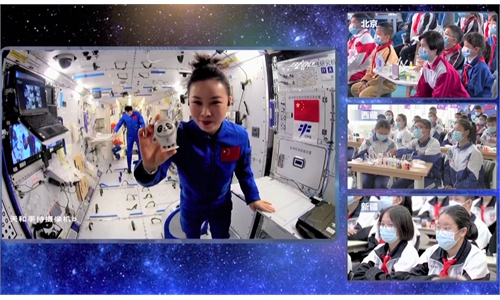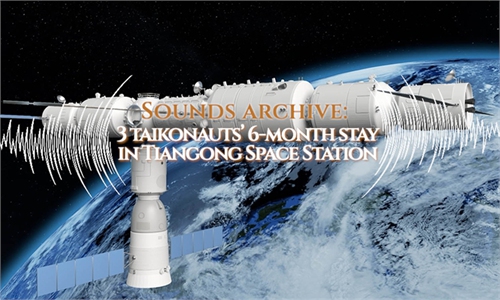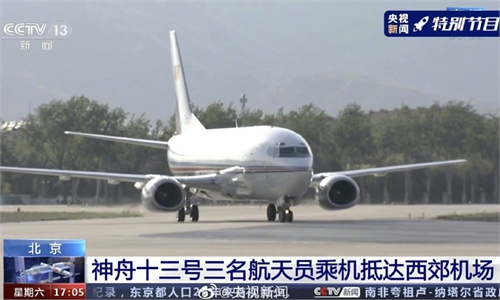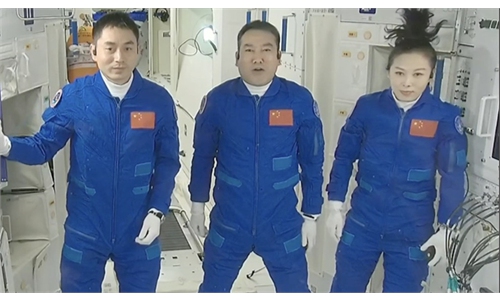GT Exclusive: "Absolutely yes": vice chief designer on whether China's Tiangong can become space post house for mankind
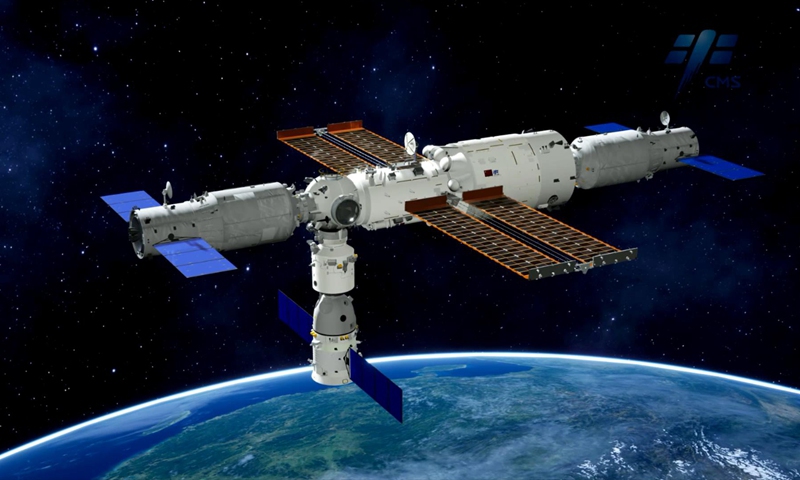
Photo: Web
Will China's Tiangong space station become a station shared by all mankind? Bai Linhou, vice chief designer of the space station, said "absolutely yes" in an exclusive interview with the Global Times, as the space station can be expanded technically and has reserved docking hatches.
With three taikonauts returning to Earth on Shenzhou-13 on Saturday, China's space station completed its key technology verification and is in the assembly and construction phase -- the consecutive successes of China's space station development make it the new hope as the International Space Station will be retired soon.
China has showed an open and inclusive attitude repeatedly for the use of China's space station. Director of China Manned Space Engineering Office Yang Liwei said, "As always, we hold an open attitude toward international cooperation and we welcome more countries to join us in conducting research in space" at the two sessions this year.
Yang said from the engineering aspect, China has reserved resources for possible international cooperation, ranging from small experiments to large-scale cooperation at cabin level. The space station has reserved docking hatches for future international cooperation.
China is open to different countries and institutes in developing manned space cause. There are 9 experiments in cooperation with other countries at the space station and there will be more, and even joint spaceflights in the future, according to Yang.
Bai told the Global Times that China's space station is independently developed by China, but it's also an inclusive space station. It is to make Chinese contributions to the peaceful use of space.
"We are glad to have such cooperation and the space station was designed in a way that foreign astronauts can adapt to," Bai said.
Russian astronaut Anton Shkaplerov, who just returned to Earth in March this year, said in a recent interview that China's space program is "good and fast," and that he and his colleagues are willing to participate in China's space programs if China allows it.
Dmitry Rogozin, director of Russian Space Agency, also said in an interview with Chinese media that China and Russia can cooperate in the field of manned spaceflight. China and Russia can explore the construction of new modules and cabins.
For Rogozin's idea, Bai said technically China's space station can be expanded by adding more cabins. "It is workable, but needs to match current cabins."
The Global Times learned that China's space station has one core module and two experiment modules, which is an appropriate scale with room for expansion rather than a large one like the International Space Station. The decision is made based on current needs and costs.
The space station can meet demands for key scientific research but can also be expanded and be able to receive other spacecraft.
The three modules form an asymmetrical "T" and can be expanded by assembling more modules with the help of robotic arms.
Foreign astronauts have two ways to enter China's space station -- by a China-launched spacecraft, or by their own spacecraft that can dock at the space station. "But this is what we need to consider in the long-term operation. The prioritized task is to complete construction of our space station, and then to consider the deeper and wider international cooperation," Bai said.
As the International Space Station is about to retire, the China's space Station is expected to become the only space station for mankind in space for a period of time. In this regard, Bai believes that China does not pursue such "uniqueness", but aims to build the space station into a national-level space experiment platform for the world.
As for whether the Chinese space station can take on the mission of the International Space Station and become a new post house for mankind in space, Bai was confident, saying "of course."
Foreign astronauts have two ways to enter China's space station -- by a China-launched spacecraft, or by their own spacecraft that can dock at the space station. "But this is what we need to consider in the long-term operation. The prioritized task is to complete construction of our space station, and then to consider the deeper and wider international cooperation," Bai said.
As the International Space Station is about to retire, the China's space Station is expected to become the only space station for mankind in space for a period of time. In this regard, Bai believes that China does not pursue such "uniqueness", but aims to build the space station into a national-level space experiment platform for the world.
As for whether the Chinese space station can take on the mission of the International Space Station and become a new post house for mankind in space, Bai was confident, saying "of course."
